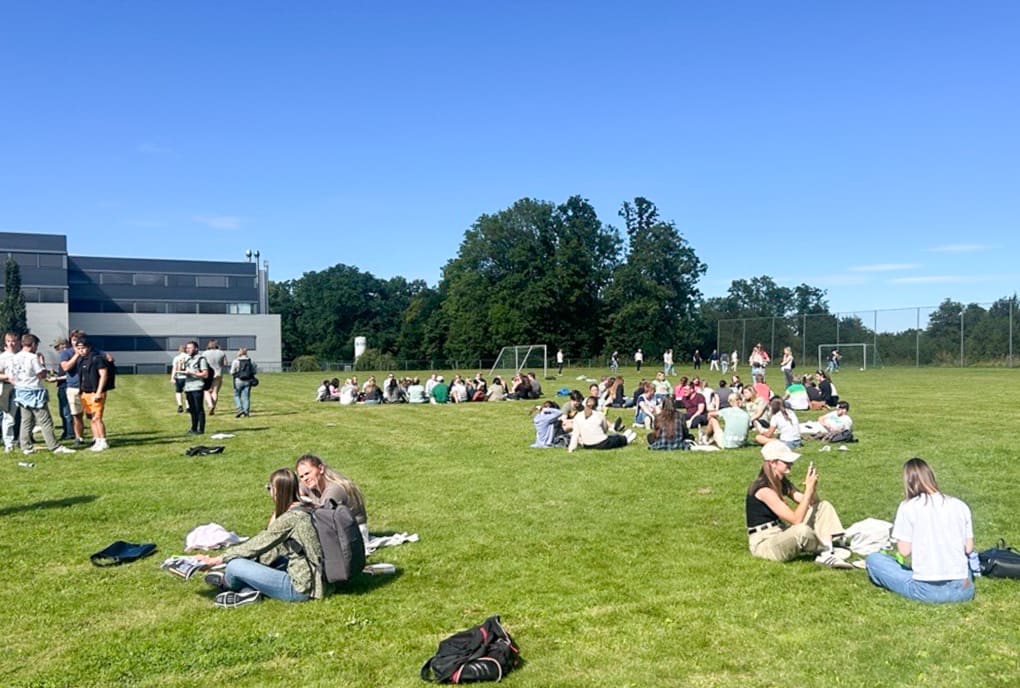Psychologist Magnus has good advice if you didn't find "your people" during the student buddy week.
These days, you can hopefully look back on a kick-start with social activities, new acquaintances and lots of fun. Sleep may have been in short supply, but who cares, if it's given you a good start to your student life!
The SHoT survey from 2022 (Students' Health and Wellbeing Survey) shows that participation in the sponsor week increases your chances of forming social networks, which in turn can contribute to increased wellbeing later on.
The Student Buddy Week is important, but not an end in itself, rather a means to a good start. Now that it's over, what do you do?
Difficulties getting started
As a psychologist at SSN, I have met many students who tell me that they have ‘fallen off the wagon’ early on. Often they have participated in the sponsorship week, but have not been able to maintain initiative and participation afterwards. It's like exercise: a boot camp is of little use if you don't continue afterwards.
It's often chance that determines whether you've found a social group that gives you enough confidence to move on. If you haven't found your place, it's all the more important to be proactive in the time ahead to become part of a community!
"There was supposed to be a party with the class that evening - but since he didn't have anyone to go with, he chose to stay in the dormitory. It was easier that way ..."
Read also: Do you get nervous in social situations?

Didn't find your crew in the Student Buddy Week? Hang in there, don't give up - you've got to keep joining things, taking action and being open!
Sign up!
Discomfort, loneliness and a lack of a sense of belonging can make it difficult to turn up and avoid situations that may reinforce these feelings. If you feel like an outsider, it's natural not to turn up. The problem with this is that you don't get the opportunity to break the pattern. So if you haven't had the start you'd like, it's extra important that you turn up now, even if it's uncomfortable. Go to a lecture, sit next to someone else, show that you are interested in contact. Find out what's happening outside of school hours, sign up!
Read also: Advice to improve your self-esteem
Show positive body language
In times of stress and social discomfort, we often protect ourselves by looking down, not making eye contact or scrolling through our phones. By doing so, we indirectly signal that we are unavailable. Just as important as reaching out to others is showing that you are available to be reached. Look up, meet people's eyes, say hello and give a friendly smile.
Ask, take the initiative and seek out!
If the start hasn't gone as you'd like, it's all the more important that you seek out arenas where you can get to know others. Ask others what's going on! Check out what activities are available at your campus in the Southeast calendar. An activity such as student sports or an association can be a good way to get to know others. Check out the student organisations on campus and get in touch.
Read more: There's more to student life than lectures and reading rooms!

Joining the student community on campus, joining the line association for your study programme or another student association can be a key to expanding your network.
Avoidance - the root of much pain
Create structure and routines. Get up and get out of the dormitory! If you're feeling a bit down, it's especially important to start your day first thing in the morning. If good relationships are slow to materialise, it's all the more important to invest your time in something meaningful. The absolute worst thing you can do in a situation like this is to isolate yourself in the dormitory. This provides time and opportunity for negative ruminations, which in turn will reinforce passivity.
Read more: The Health Blog
Remember that you're not alone
Even if it feels like it, you're not alone. The SHoT survey shows that, unfortunately, there are (too) many people who lack good relationships. Maybe an initiative from you can make another student's day better. It's better to come together than to suffer on your own!
SSN is here for you!
If things still don't go your way, don't wait to seek out someone who can help you. SSN has counsellors at all campuses who can provide good guidance and are up-to-date on what's happening. If you live in student housing, you can contact your welfare host. In addition, we also have a counselling service with counsellors and psychologists who can help you break the pattern if things get tough.
Good luck with the academic year!
Check out the health services






